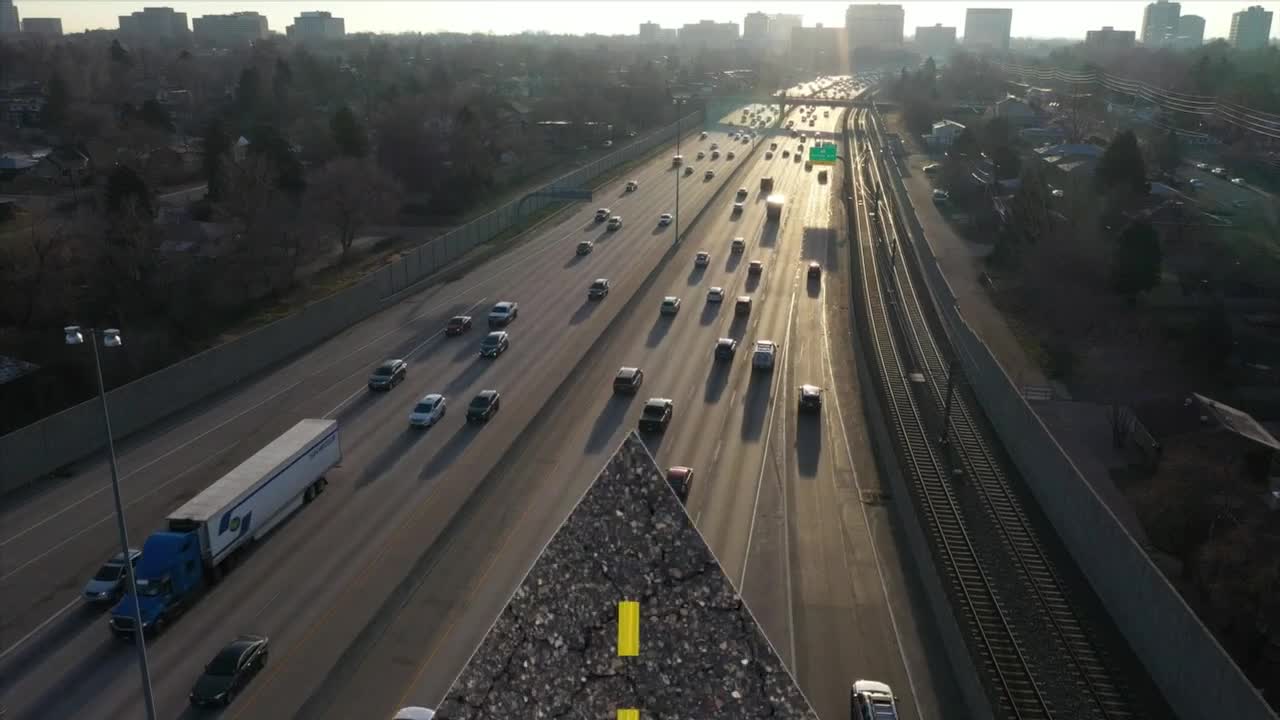DENVER — Across the state, there has been no significant improvement in infrastructure over the last five years, according to the latest "report card" from the American Society of Civil Engineers (ASCE).
Colorado received a cumulative grade of "C-," the same as the last study the ASCE conducted in 2020.
The report looks at more than a dozen different types of infrastructure.

The majority of the categories remained the same compared to the last report card. Roads were one of two categories that went down.
Colorado roads were graded as a "D+."
According to the report, the state's population has increased by 39% since 2020, leading to more cars, congestion, and wear and tear on the roads. The study also calculated the amount of time and money drivers spend sitting in traffic.

Engineers found that, statewide, 24% of roads are in poor condition, while 35% are in good condition.
The researchers acknowledge that money is being spent on the problem, just not enough.
"CDOT has an annual budget of $1.55 billion. Of that, nearly half ($747 million) goes toward maintaining the existing system. Another 14% ($209 million) is directly passed through to counties and cities for local projects. After accounting for other budget commitments, too little remains to expand Colorado’s transportation system."
There were four recommendations to raise the grade of roads.
One suggestion is that communities continue to lower speed limits on all roads that tend to see frequent crashes. Other recommendations include optimizing existing road capacity, increasing multimodal infrastructure such as bus stops and bike lanes, and exploring more diverse funding options.
The report suggests exploring road funding options beyond gas taxes.
They point to the increasing number of electric vehicles in Colorado. According to the report, there were 4,364 EVs registered in Colorado in 2014. In 2024, there were 155,558.
As a result, fewer drivers are paying into the gas tax. The report also notes that of the 32 states that charge EV registration fees, Colorado has the least expensive cost at $57.19 per year.
To read the full report on all 14 categories of infrastructure, click here.






